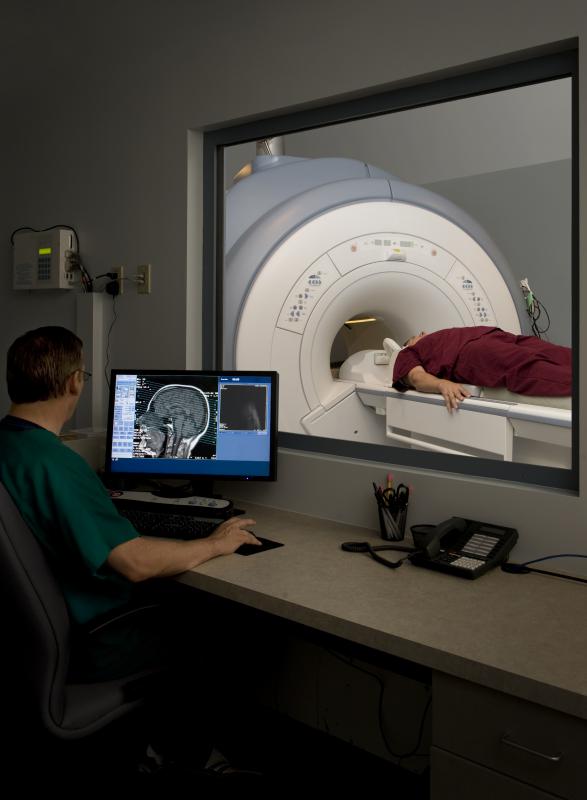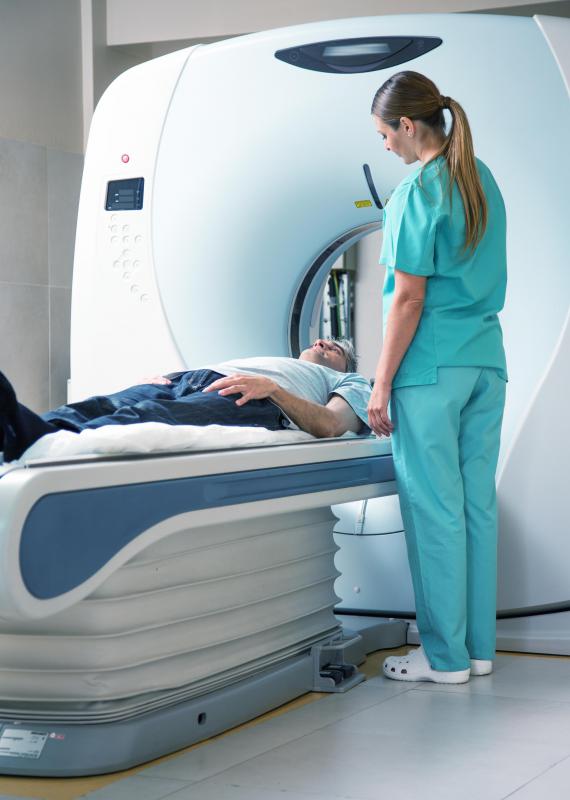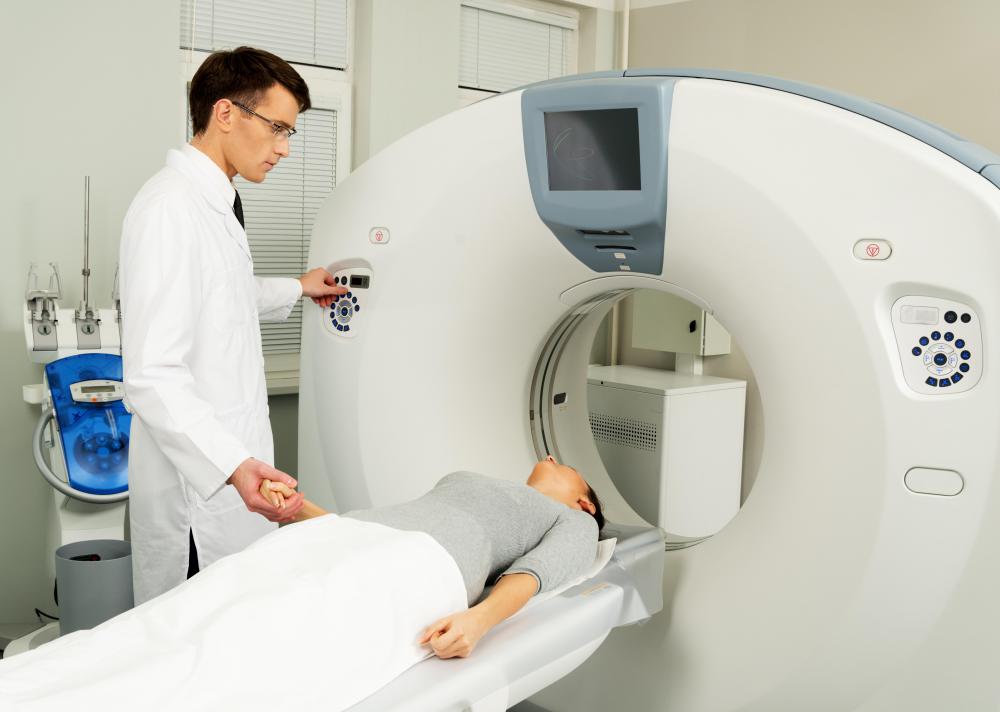At PracticalAdultInsights, we're committed to delivering accurate, trustworthy information. Our expert-authored content is rigorously fact-checked and sourced from credible authorities. Discover how we uphold the highest standards in providing you with reliable knowledge.
What does a Neuroradiologist do?
A neuroradiologist is a licensed medical doctor who specializes in diagnosing disorders of the nervous system using imaging equipment. A doctor takes x-rays, computerized tomography (CT) scans, and magnetic resonance imaging (MRI) screens to look for signs of disease and trauma. He or she records and interprets findings from imaging tests to make accurate diagnoses. Since neuroradiologists conduct such complex, delicate procedures, they are required to receive extensive training through four years of medical school and up to nine years of postdoctoral residency and fellowship programs.
When doctors and nurses suspect a patient may be suffering from a neurological problem, they contact a neuroradiologist to oversee a series of diagnostic tests. X-rays are commonly performed to analyze the extent of bone and tissue damage from obvious trauma. CT and MRI scans can reveal more detailed depictions of brain and spinal cord disorders. Neuroradiologists utilize their knowledge of anatomy and disease to interpret images and make diagnoses. They communicate findings to neurologists and other specialists and discuss possible courses of treatment.

Most standard x-ray, MRI, and CT scans are performed by trained radiology technicians, and their results are interpreted by the neuroradiologist. Some tests, however, require special procedures that only the neuroradiologist is qualified to perform. Many brain and bone disorders are difficult to assess from standard images but become clear when certain tissues are exposed to radiation. Neuroradiologists administer radioactive compounds and chemical dyes that target particular cells, such as those afflicted with cancer. Imaging tests reveal the effects of radiation to illuminate nervous system abnormalities.

A Doctor of Medicine degree from an accredited medical school is required to become a neuroradiologist. Following graduation, a new doctor typically begins a yearlong internship at a general hospital or emergency room to gain firsthand experience working with patients. The next four years are spent in a residency program in the radiology department of a hospital or clinic, during which time the doctor receives practical training from established radiologists. In order to practice neuroradiology, an individual must complete an additional one- to four-year fellowship in the specialty.

Neuroradiologist fellows perform diagnostic services and offer treatment advice under the guidance of more experienced doctors. In order to begin practicing independently, a fellow is required to pass an examination administered by a nationally recognized certifying board. A newly licensed neuroradiologist can pursue permanent career opportunities at emergency care centers hospitals, specialty clinics, and private practices.
AS FEATURED ON:
AS FEATURED ON:
















Discussion Comments
@SurfNTurf - I know what you mean that is why the average neuroradiologist salary ranges from $230,000 to $400,000. I am sure that some make even more than that.
I think that it would be a really hard to be a pediatric neurologist because it must be hard to tell a parent that their child has a brain tumor or that their child has visible brain damage. I sometimes think that these doctors really should be paid more.
I just wanted to say that a friend of mine went to see a neuroradiologist because she was having a lot of headaches.
The neuroradiologist found a brain tumor, but luckily the tumor is benign. She still has to go back for checkups every six months in order to make sure that she does not develop a malignant tumor.
She told me that she was so worried that the tumor might be malignant and she would have to have surgery to remove it. I could not imagine what she was feeling. I think that neurology jobs are probably among the most complex medical fields around.
Post your comments